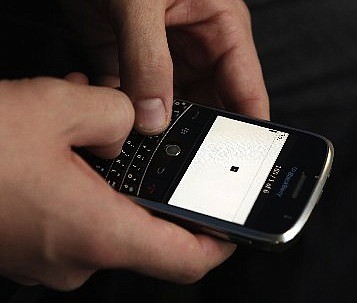NASHVILLE, Tenn. - Minors who send sexually explicit photos to one another could face far less serious consequences than they do now, under a bill that received final support from Tennessee lawmakers Wednesday.
Current law states that juveniles who email or text explicit photos can be charged with sexual exploitation of a minor, even if the pictures are consensual. That's the equivalent of child pornography and prosecutors are loath to bring such serious charges in most cases, said Williamson County District Attorney Kim Helper.
"That's really not, from our perspective, the best response to this," Helper said. "In our district, we've done an awful lot of public outreach to high-school and middle-school kids. In most cases, it's probably just kids not thinking about it or not understanding that once you send that photo, you've lost control over it and you never know where it's going to end up." Prosecutors generally are faced with either charging juveniles with sexual exploitation of a minor - something that may get them on a juvenile sex-offender registry in another state -or doing nothing at all, she said.
Under the bill the Senate passed by a 26-2 vote Wednesday, authorities could instead charge minors with an "unruly offense" in juvenile court. Unruly offenses currently include such infractions as skipping school or violating curfew. The House passed the bill last week, and Gov. Bill Haslam is expected to sign it.
One academic who has studied sexting, which is the sending of sexually explicit photos and messages via cellphones or other electronic devices, says that while she thinks it is good lawmakers don't want kids to face serious sex-offender charges for sending the images, she thinks they shouldn't be charged at all in cases where it's consensual.
"I think we do need to educate teens, but that does not need to happen through the criminal justice system," said Amy Hasinoff, an assistant professor of communications at the University of Colorado and author of the book "Sexting Panic."
"That should happen through the education system."
She maintains that kids are going to send the racy photos, anyway. She also worries that victims who receive sexually explicit photos who didn't ask for them will be less likely to come forward.
The bill, which is sponsored by Republican Sen. Jack Johnson of Franklin, says juveniles won't face charges if they tell a parent or other authority figure that they received the pictures or if they delete them.
Sen. Brian Kelsey, a Republican from Germantown, unsuccessfully tried to tack on an amendment that he said would make sure a victim could never be charged with a felony for simply getting the unwarranted photos.
"Well, members, I would submit to you there's not a district attorney in the state of Tennessee who is gonna prosecute, as an adult, a 17-year-old girl for receiving unwanted sexually explicit images," Johnson said.
